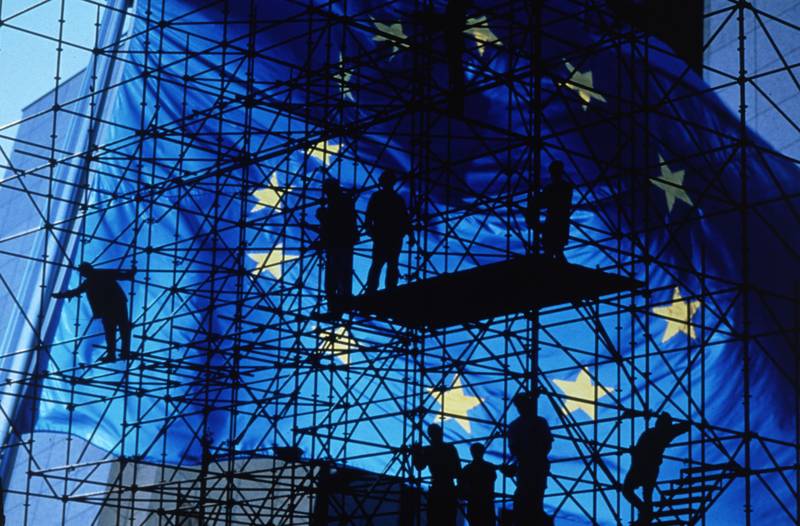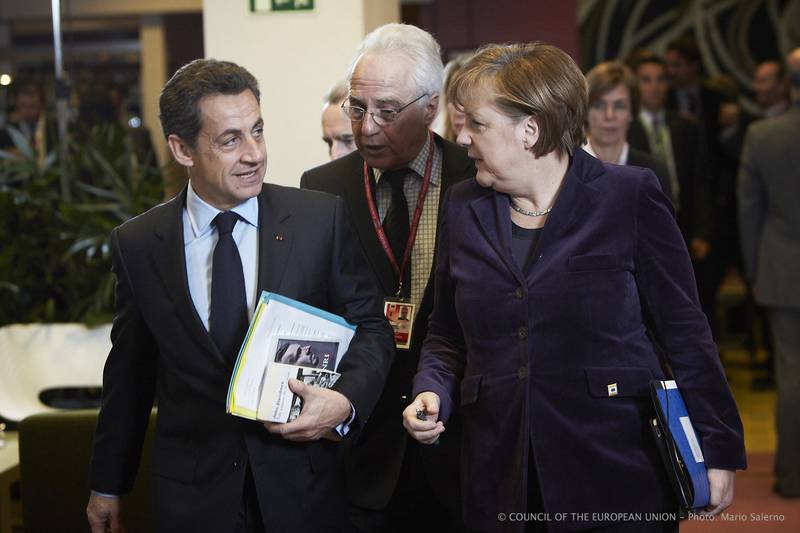Why Is Merkel Growingly Standing Behind Jean-Claude Juncker?
Adelina Marini, May 31, 2014
 Before the beginning of the EU summit on May 27th, when the outcome of the European elections on May 22-25 was discussed, German Chancellor Angela Merkel answered the question whether she will back the EPP nomination for European Commission chief Jean-Claude Juncker or she would succumb to British Prime Minister's pressure a candidate different from the so called Spitzenkandidaten (nominated by the European political parties) in a way that opened a broad field for interpretations. British media immediately decided that this means she is giving up on Juncker to the benefit of Cameron, which caused heavy criticism against the Chancellor in Germany. Beside Cameron, against the "automatism" for the top job in the EU are also the prime ministers of Hungary and Sweden - Viktor Orban and Fredrik Reinfeldt. The rest were more or less neutral and a few were firmly against a "substitution" of the vote.
Before the beginning of the EU summit on May 27th, when the outcome of the European elections on May 22-25 was discussed, German Chancellor Angela Merkel answered the question whether she will back the EPP nomination for European Commission chief Jean-Claude Juncker or she would succumb to British Prime Minister's pressure a candidate different from the so called Spitzenkandidaten (nominated by the European political parties) in a way that opened a broad field for interpretations. British media immediately decided that this means she is giving up on Juncker to the benefit of Cameron, which caused heavy criticism against the Chancellor in Germany. Beside Cameron, against the "automatism" for the top job in the EU are also the prime ministers of Hungary and Sweden - Viktor Orban and Fredrik Reinfeldt. The rest were more or less neutral and a few were firmly against a "substitution" of the vote.
However, on Friday, before the National Catholic Congress in Regensburg, Ms Merkel was much more explicit and clear: "I will lead all negotiations in the spirit that Jean-Claude Juncker should become president of the European Commission". Why has Merkel specified her position? Because this is the last European Parliament which can help her achieve the more integrated Economic and Monetary Union and to lay the foundations of a euro area parliament. If the trend anti-European parties to increase their force maintains all her ideas to enhance the euro area could fail. A confrontation with the pro-European forces could lead to conflicts and more intergovernmentalism as euinside wrote recently. Some of the ideas that come from Berlin or are well accepted in the German capital are related to turning the eurozone into a "genuine union", potentially with a parliament of its own. From this point of view, it would not be good for Merkel to "lose" the Parliament in a battle which is not important against the backdrop of the future reform of the EU (the eurozone specifically). If she decides to support Cameron's domestic political battle, she will remain in history as the chancellor who laid the foundation of disintegration of the EU - something which will be of a great loss to Germany. The country that benefited the most from the common currency.
To Angela Merkel the stabilisation of the eurozone and the prevention of future crises is a much more important task than keeping Britain in the Union, which already is half way out. In this way, she will consolidate support around the deepening of the integration and will force the non-euro countries to decide faster when they will fulfil their accession treaty commitments and those who agreed opt-outs should decide whether to adopt the common currency or to follow Britain to the exit.
There is another, not less justified, reason Merkel to prefer Juncker to Cameron. The newer and smaller member states, in general, are either openly in support of "automatism" or they express neutral positions pending decision of the Council. This is so because, in this way, they avoid being circumvented in the decision-making process in the Council when the big member states pass their decisions thanks to their influence. In the same time, for Merkel, too, it is better to take the Spitzenkandidat because this will save her the headache to trade dearly the distribution of commisioner portfolios within the Commission and ensures that no member state will get undeservedly a higher or lower portfolio only because it had traded it in an appropriate way its support for a person other than Spitzenkandidaten.
Of course, nothing is over yet and it is not impossible Germany to change or modify its position. Crucial will be the regular summit in June. Then the cards will fall and the stakes will be clearly seen.
 | © European Commission
| © European Commission | © euinside
| © euinside Nicolas Sarkozy, Angela Merkel | © Council of EU
Nicolas Sarkozy, Angela Merkel | © Council of EU